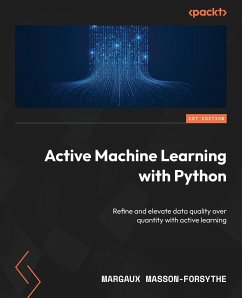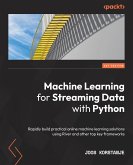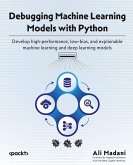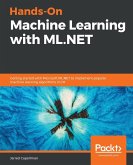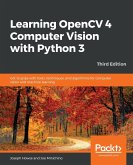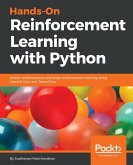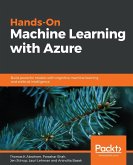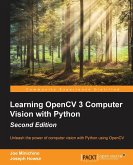Use active machine learning with Python to improve the accuracy of predictive models, streamline the data analysis process, and adapt to evolving data trends, fostering innovation and progress across diverse fieldsKey FeaturesLearn how to implement a pipeline for optimal model creation from large datasets and at lower costs Gain profound insights within your data while achieving greater efficiency and speed Apply your knowledge to real-world use cases and solve complex ML problems Purchase of the print or Kindle book includes a free PDF eBook Book Description Building accurate machine learning models requires quality data-lots of it. However, for most teams, assembling massive datasets is time-consuming, expensive, or downright impossible. Led by Margaux Masson-Forsythe, a seasoned ML engineer and advocate for surgical data science and climate AI advancements, this hands-on guide to active machine learning demonstrates how to train robust models with just a fraction of the data using Python's powerful active learning tools. You'll master the fundamental techniques of active learning, such as membership query synthesis, stream-based sampling, and pool-based sampling and gain insights for designing and implementing active learning algorithms with query strategy and Human-in-the-Loop frameworks. Exploring various active machine learning techniques, you'll learn how to enhance the performance of computer vision models like image classification, object detection, and semantic segmentation and delve into a machine AL method for selecting the most informative frames for labeling large videos, addressing duplicated data. You'll also assess the effectiveness and efficiency of active machine learning systems through performance evaluation. By the end of the book, you'll be able to enhance your active learning projects by leveraging Python libraries, frameworks, and commonly used tools.What you will learnMaster the fundamentals of active machine learning Understand query strategies for optimal model training with minimal data Tackle class imbalance, concept drift, and other data challenges Evaluate and analyze active learning model performance Integrate active learning libraries into workflows effectively Optimize workflows for human labelers Explore the finest active learning tools available today Who this book is for Ideal for data scientists and ML engineers aiming to maximize model performance while minimizing costly data labeling, this book is your guide to optimizing ML workflows and prioritizing quality over quantity. Whether you're a technical practitioner or team lead, you'll benefit from the proven methods presented in this book to slash data requirements and iterate faster. Basic Python proficiency and familiarity with machine learning concepts such as datasets and convolutional neural networks is all you need to get started.Table of ContentsIntroducing Active Machine Learning Designing Query Strategy Frameworks Managing the Human in the Loop Applying Active Learning to Computer Vision Leveraging Active Learning for Big Data Evaluating and Enhancing Efficiency Utilizing Tools and Packages for Active Learning

